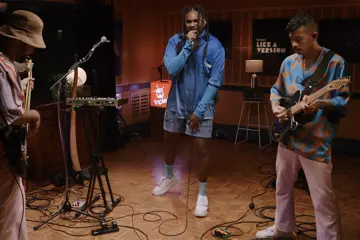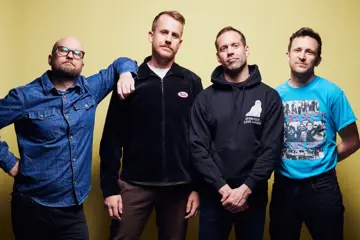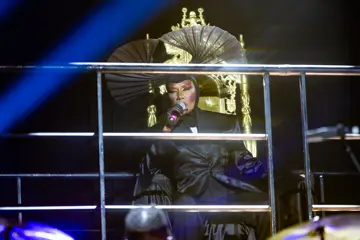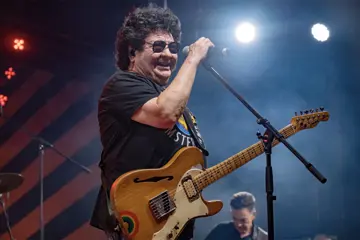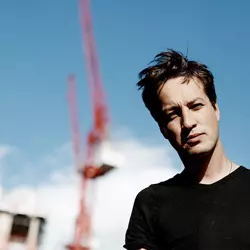 Marlon Williams
Marlon WilliamsItinerant Kiwi-bred troubadour Marlon Williams has crisscrossed the globe for the past two years on the back of his acclaimed 2015 eponymous debut album, creating a huge and devoted global following for himself in the process. Yet instead of being daunted by the prospect of mass scrutiny for his inevitable follow-up, he retreated to his native Lyttelton on the South Island of New Zealand and penned the calculatedly ambitious cache of songs that comprise his stunning new album Make Way For Love.
The most major shift between the two collections is the completely recalibrated musical focus: where on his debut Williams favoured the alt-country realms with flourishes of bluegrass, blues and folk, he's now gone completely and unreservedly into '60s crooner mode, as if he filed away his Gram Parsons and The Byrds records and pulled out a slew of Roy Orbison and Jim Reeves platters in their place.
Recorded in North California at Panoramic Studios with producer Noah Georgeson (The Strokes, Joanna Newsom, Devendra Banhart), they've concocted a perfectly stripped-back baroque bedrock, which - abetted by adroit restraint courtesy of his accomplished backing band The Yarra Benders - allows Williams' incredibly emotive voice to take centre stage where it belongs. Throughout the album his near-impeccable vocals soar and wane with impunity - his childhood choir training gifting him mastery of pitch and harmony - and while the overall result is still a defiantly retro vibe, it's one that feels decidedly richer and more sonically realised.
The other major point of departure on Make Way For Love is the unflinchingly personal nature of the lyrical content. His self-titled effort certainly dealt with weighty topics rife with death and darkness, but they were usually written at a remove (or indeed penned by other people) with fleshed-out characters used to inhabit the narratives, while here Williams places himself front and centre as he struggles to make sense of the end of a deep and resonating relationship, and reconcile his new future with now-redundant hopes and expectations.
Don't miss a beat with our FREE daily newsletter
The fact that single Nobody Gets What They Want Anymore finds him duetting with the very person he's so forlorn about basically redefines pathos, Williams sharing vocals with lifelong friend and former long-term lover Aldous Harding - herself a formidable solo artist of growing renown - who is (presumably) the protagonist in most of these torch songs. Fortunately, Williams is able to find beauty among his loss, with wonderful phrasings such as, "People tell me, 'Boy you dodged a bullet/But if only it hit me then I'd know the peace it brings" (piano and voice lament, Love Is A Terrible Thing), "The hard thing about love is that it has to burn or die" (the falsetto and harmony-laden Beautiful Dress) and, "You're spreading the pain/Digging holes just to fill them again" (sadly soulful opener Come To Me) sounding impossibly emotive when delivered in his melancholic cadence.
Elsewhere, the simply gorgeous melody of What's Chasing You entirely steals the show, sweeping strings and subtle electronic flourishes fight for attention on The Fire Of Love, Party Boy delivers not-so-veiled threats to a potential love rival over repetitive beats and mournful ballad Can I Call You reeks of a heart freshly ripped asunder.
Indeed what makes Make Way For Love so special is that the lovelorn misery inherent in these paeans to heartbreak doesn't overshadow the unabashed beauty of the arrangement, production and delivery, meaning that through the despair the results prove routinely uplifting rather than deflating. A magnificent second gambit.







